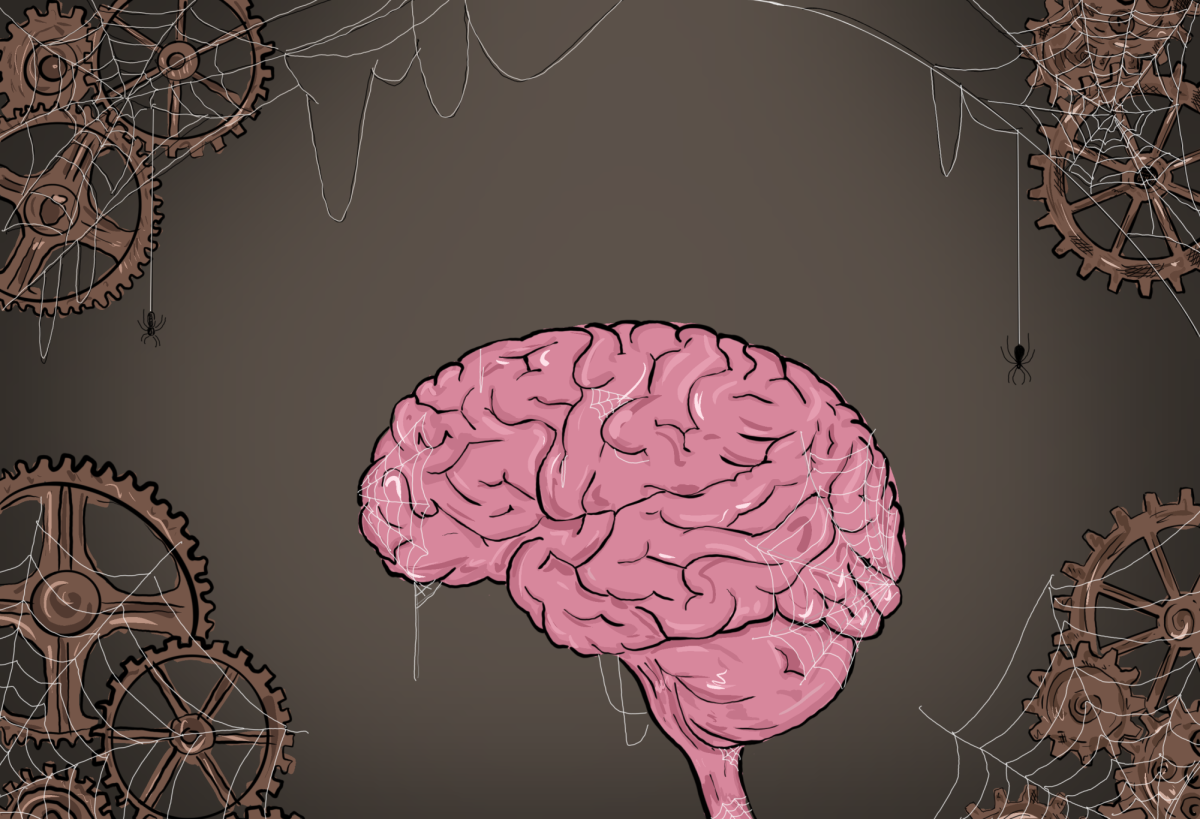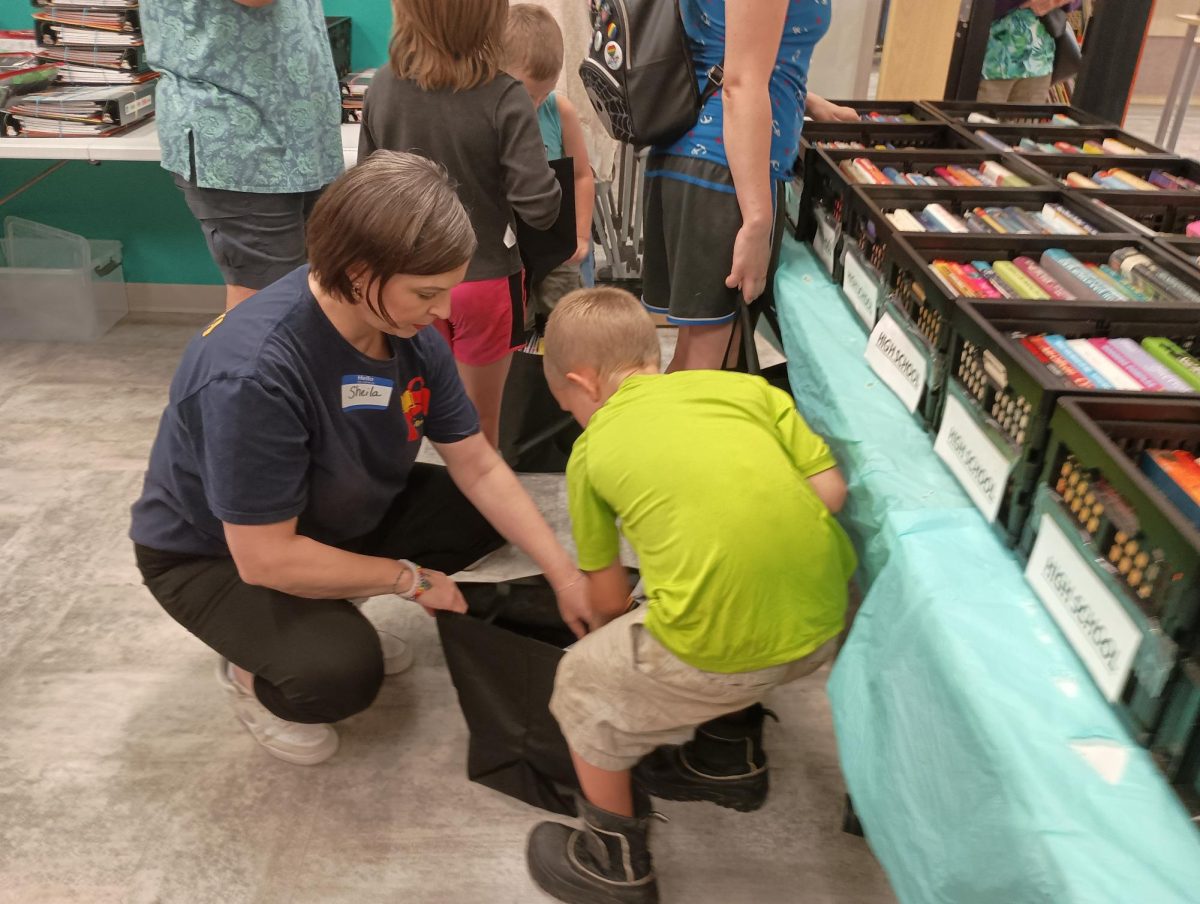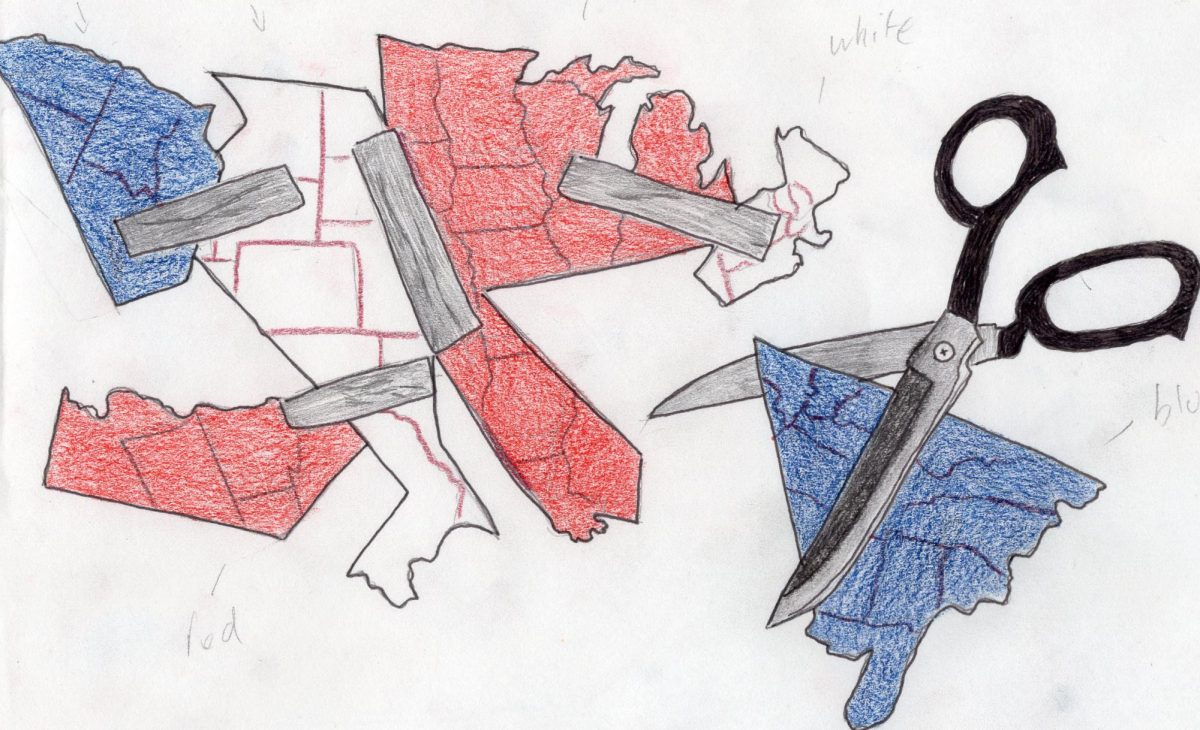Language is one of the most common things that seems to fluctuate throughout generations. The youth can find ways to express themselves using unique words and phrases as slang. According to the Oxford Dictionary, brain rot was deemed Word of the Year in 2024 and has been represented by younger generations. The youth uses slang phrases described as “brain rot” to form connections with fellow peers, however, the use of these slang terms may also affect the comprehension and psychological thinking of children.
Hannah Ament, a freshman at Missouri State University majoring in business, said she first learned of the term brain rot from the app TikTok and oral communication.
“The first time I heard of brain rot was right before I deleted TikTok … two years ago, … and I just thought of it like a compilation video of some really stupid memes, so that’s just kind of how I associate it with, stupid memes,” Ament said.
One of the various ways children can pick up brain rot is from school.
“My mom is in education and she’s told me that some of the teachers are even using brain rot terms in their classroom to try and fit in with kids so then they might hear it from their teacher and then pick it up and start using it,” Ament said.
Another way kids can discover new slang terms is by socializing with others. Nihkenzie Eagleson, a freshman majoring in criminology and psychology at MSU, said communicating face-to-face with the youth can increase the spread of brain rot.
“I know some kids don’t have social media, and aren’t allowed to have social media,” Eagleson said. “But even if you don’t, it’ll spread through putting a bunch of kids in one place. It’s going to catch on.”
Mimi Claeys, a sixth-grade teacher at Summit Intermediate, said kids can share a connection with one another through new slang.
“I think the positive is they have, like, a bonding with each other because they have that vocabulary,” Claeys said.
Ament said she has made new friends in her college by using brain rot.
“Saying some jokes … like brain rot or slang and then you kind of connect over that with someone because they get the joke that you’re trying to make,” Ament said. “So I definitely think that [brain rot] can connect people.”
One may also use brain rot day-to-day for the irony under unserious and joking circumstances.
“I probably can’t go through one class period without hearing someone say something that sounds like brain rot … they’re not saying it to actually use the phrase to be funny,” Ament said. “They’re saying it because it’s like, ‘Oh, this is stupid. Let me make fun of this thing.’ That’s where the humor comes from.”
Although brain rot can have beneficial results, it can also have various adverse effects on one’s way of thinking.
“I think sometimes it brings down their self-esteem and sometimes they don’t try as hard as they could because they are thinking someone’s going to judge them that way,” Claeys said.
A possible negative effect of adopting these phrases at such a young age is that it may hinder language development in the youth.
“If you’re constantly speaking in slang terms versus the correct terminology for something … I think that it could have an impact on your future school career and how you use language, say writing a paper, because then you might not default to proper language or more formal language, but you might just use the informal slang and then it could just impact their school career,” Ament said.
Eagleson said many kids struggle to speak formally after being surrounded by brain rot for extended periods of time.
“Those aren’t the kind of words you can say in a professional setting,” Eagleson said. “It’s not appropriate. … They don’t know how to talk to adults.”
Slang terms can also prevent true communication between youth and adults.
“[Brain rot] is going to impact their vocabulary and just overall cognitive thinking because it just takes root in their brain and then it doesn’t get out, and then they aren’t really learning any proper language,” Ament said.
For one who is not familiar with the newest slang terms, it might be difficult for an easy conversation to take place.
“If someone considers themself more serious or isn’t really online, and then someone who is chronically online uses a brain rot term or slang they might not understand it and so they could maybe get offended,” Ament said.
Not only does brain rot limit language skills and formality, but it can also restrict creativity.
“I think younger generations will find it harder to be professional when the time comes when they actually have to grow up and do stuff,” Eagleson said. “[Brain rot] takes away an ability to be original and creative in some ways because it’s already made, you’re not having your own ideas as much.”
The widespread use of mainstream slang for expression among large audiences can discourage youth from forming their own opinions.
“It’s taking away some of that individuality with expression, so kids might have a hard time as they’re growing up with feeling … like they’re having imposter syndrome, because they grew up, saying all of these things that everyone else is saying,” Ament said.
With the younger generations aging and more people adopting new slang terms, brain rot might not be forgotten over time.
“I think that they might forget some brain rot that they know now, but I think that they’ll come up with new slang terms and that will replace kind of what they have right now so I think brain rot is still going to be a part of their everyday life,” Ament said. “I think it’s just going to look different and sound different and then with everything right now being so public and visible I think that people in the future [will] probably stumble across recordings with people saying stuff and they’re going to be like, ‘That’s stupid. Let me start saying it.’ Then it will kinda catch on again.”
Brain rot can stick with younger generations for the rest of their lives. But as the current youth matures, so can their use of vocabulary.
“From my experience, … college kids will still use brain rot terms and stuff … but they also know how to be professional when the time comes,” Eagleson said. “So I don’t think it necessarily evolves or goes away, but it becomes used at more appropriate times when you get older.”
















